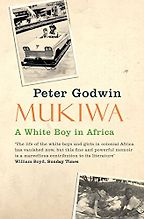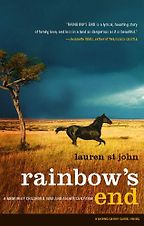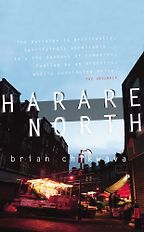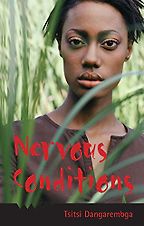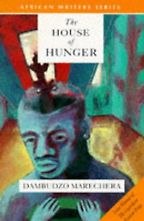Shall we start at the beginning?
These first two books are by my brother, Peter, who is ten years older than me. What’s interesting is that people go up to him and say; ‘Oh my God, you wrote my life! That’s just what it was like growing up in Rhodesia!’ But, for me, he really did write my life. What he’s done, I think, is to encapsulate the white experience in that country.
In Mukiwa he talks with the voice of a child and that child grows up during the book – it’s very affecting. It’s really a love letter to my mother. And the second one is a love letter to my father, or, perhaps an examination of him. It’s also a kind of Zimbabwe 101 and it’s what new diplomats to Zim read because it explains what happened, why it happened.
The book Rhodesian never Die which Peter wrote with Ian Hancock is a very useful academic work which examines white society post UDI. But Mukiwa is a memoir and explains what happened through Peter’s perspective.
What did happen?
Well, it’s about how Rhodesia became Zimbabwe, from Ian Smith’s Unilateral Declaration of Independence in 1965, through the war, which was basically between black and white Rhodesians, and then Robert Mugabe’s election in 1980 and the birth of Zimbabwe.
His next book, The Fear, is going to be about what happens now, what happens next.
His books are very personal family stories. Did you mind being written about in such detail?
People often ask me how I deal with that, but the family has the last edit. He’s very good about it. We can take out anything we don’t like or that we disagree with, but, in the sense that a memoir is looking out and biography is looking in, it’s hard to say ‘that didn’t happen’ because he’s seeing it through his eyes, it looked like that to him. And once it’s in the book it becomes the new truth. Once it’s in then that’s how it was.
Are there things that, in retrospect, you wish you’d taken out?
No. In fact it’s very liberating. We were brought up with this enormous secret, my father’s secret, that he was Jewish – Peter writes about this in When a Crocodile Eats the Sun – and suddenly it’s out there for everybody, absolutely everybody. It’s kind of odd.
Odd isn’t the same as cathartic. Do you think somebody else’s writing, somebody else’s experience can be cathartic?
I think people do find it cathartic even though it isn’t their own experience. From the letters we get – people get us muddled up as though we are sort of interchangeable – I think they do feel that their life has been given a voice somehow. Peter was actually a combatant in the war, fighting for the white Rhodesians against Mugabe and other factions. It was black versus white and…
I’ve just been to Sarajevo and it’s amazing being somewhere that has had a war people can talk about, are allowed to talk about. We, white Zimbabweans, aren’t allowed to talk about the war because we were on the losing side. It’s unhealthy. We are very unhealthy. Because there’s nowhere for us to go with our experience. I think many white Zimbabweans don’t feel welcome at home and they don’t fit in anywhere else. Many of them have been very privileged– they lose servants and swimming pools and gain nothing. The politics of the Diaspora is very unhealthy as well, for blacks and whites. It’s really toxic. There is a lot of backstabbing.
Why?
You’re not there, not on the ground and so it’s easy for ex-pat factions to develop when nobody really knows what’s going on. It’s the country in microcosm and it’s not nice.
And Peter’s working on his next book. Are you involved in that too?
Yes. We went on a research trip earlier this year and drove around having experiences. He has to have experiences to write about them and he has to have them with someone. We discuss everything a lot, the stories we’ve found. I mean, I suppose we are quite interchangeable…
How was Zimbabwe when you went back?
It seemed much healthier. The government of National Unity seemed as though it might work. Two weeks ago I thought it would, but now I think it might just fracture. Many parts of ZANU (PF) – Mugabe’s party, are trying to undermine the GNU and are working to split the Movement for Democratic Change. I suppose there is a chance that some of the opposition might stay with ZANU, (Mugabe’s party).
The MDC was formed for a sprint and has ended up in a marathon. They are activists, not necessarily educated people. There are already two factions. But the good thing is that the US dollar is now the currency. That is a major difference, has stopped the rampant hyperinflation and means there’s money around, that people can buy things with their wages. I have a 100 trillion Zimbabwean dollar note. When you can’t write a cheque because the figures won’t fit onto it, things are really bad. But now the ZANU-PF are trying to make as much money as possible before they have to go, selling all the crops and abandoning the farms. It’s a feeding frenzy.
Is Lauren St John’s memoir different from Peter’s?
Yes. I think it is. Peter spawned a genre of Zimbabwe memoirs written by people who thought; ‘I lived through that too, I’m going to write one.’ They were a bit derivative, but Lauren’s isn’t like that. She lived in a house, Rainbow’s End, and something really terrible had happened to the family who lived there before. They were all murdered in the 1970s, the kids and everyone, killed by the terrorists. I don’t think we’re allowed to call them terrorists any more. But she writes about that and about her pony and living the wild life. She calls it a memoir of childhood, war and an African farm and it’s a girl’s own adventure really. She has a fantastic sense of place.
She writes children’s books too – The White Giraffe is one of them – and those work really well because of the sense of the country. Rainbow’s End is about the lost dream, I suppose. You can be from anywhere, she says, but not from Africa, not if you’re white.
These memoirs all sound sorrowful.
The Happy Nation Index has just come out, it’s a survey from a UK-based think tank called New Economics Foundation, and, of 143 nations surveyed, Zimbabwe is the unhappiest. Life expectancy for women in Zimbabwe is 34.
That is presumably a survey of people living there now, through the crisis. The books we’re talking about are by ex-pats, but there is a real feeling of sorrow in what you’re saying. A kind of Gone With The Wind feeling.
It is like that. Last time I went back, for my best friend’s funeral, I had a camera crew with me making a documentary and I was wandering around my house in Harare, the house I used to live in, and there is a pale patch on the carpet where the grand piano used to be. There is maize drying on the veranda where I used to give huge dinners for 25 people. I gave the house to my gardener. I said; ‘I haven’t got the deeds, but have it if you want it.’ Peter wanted his next book to be more optimistic but I don’t think it will be.
Actually, I have chosen a specifically ex-pat book next – Harare North. Harare North is London in the book and it’s in the first person about this Green Bomber, the youth militia for ZANU-PF, and he now lives in Brixton. It’s this cynical, subversive book and a story about the underclass in London that most people don’t even notice – here illegally, doing cash-paid jobs. Eventually he goes completely mad.
And did he go completely mad, the author?
GG: No. And he was never a Green Bomber either. He writes in this odd sort of patois that takes a long time to get into, about living under the radar, being a parasite. It’s the London of the dispossessed – he’s a mesmerising character. It’s humorous too, an incredibly powerful and original voice. It’s about his personal choices and wider events, about his denial – he won’t acknowledge his house in Zimbabwe is being pulled down.
Do you think a lot of Zimbabwean exiles are in denial about what goes on at home?
Definitely. It’s very hard to think about it all. I think being an ex-pat from Zimbabwe might certainly send you mad. You don’t belong anywhere any more. Last year I was thinking of moving back. I was actually looking at schools. But I’ve just been again and realised I can’t. Not now. I think really that it’s especially true for white Zimbabweans that we can’t go back, because the country we miss, the country we are from doesn’t exist any more. What is so odd is that one of the things that holds us together now is Facebook. I just organised a funeral on Facebook.
Your next book is another story of a black Zimbabwean though.
Yes. Nervous Conditions. This was hailed as big contribution to African feminism at the time, in 1988 when it was published. And it was anti-colonial, dealing with racial distinctions and culture clashes and it challenges all sorts of stereotypes about the west being more sophisticated than Africa and about African womanhood. Even the title is an attack on colonialism because it’s talking about anorexia – you’ve come over here to kill us with your western diseases kind of thing.
It’s about a Shona girl whose brother dies and this death means that she is allowed to be educated. It’s about the patriarchal culture and how, once she’s educated, she is expected to provide for the whole family like a man would have had to. It’s actually the story of five different women.
It sounds as though black and white Zimbabweans have a completely different history and identity.
Totally different. What’s amazing though is that the accent has changed now. Since 1980 when schools became multi-racial everyone, black and white, has the same accent. That didn’t used to be true.
So you went to a segregated school?
Actually, no. My school was private and my best friend , still my best friend today now that we both live in London, was black and had to knit balaclavas for the Rhodesian army. I remember that mine was green, to blend in with the countryside, and hers was brown to blend in with her skin. I wrote a play once, I remember, and she was in it, singing songs about the terrorists. Bizarre. But I worked for the state broadcaster for so long, broadcasting to blacks and whites, that I suppose I had an identity with both so I’m lucky. And now it’s more about class than colour.
Which brings us to the Dumbudzo Marechera book.
Yes. He died homeless on a park bench in 1987. He’d been kicked out of Oxford for ‘unsociable behaviour and academic dereliction’ …
We’re all guilty of that.
We are. But I think he was in a very dark place and the short stories reflect that. He’s talked about as the African Joyce and the stories are difficult to read. There are lots of shifts in time and place and you’re never quite sure what is real and what isn’t. He came from a township where his mother was a maid and his father worked in a mortuary and he had a brutal childhood, which he writes about here. He writes about race discrimination, poverty, violence. He was a vocal critic of the colonial teaching syllabus. I’m not sure if I exactly like his work but he’s definitely part of the post-colonial canon and he was, I think, the first black Zimbabwean writer writing in English, but his books weren’t recognised in his lifetime.
What did he die of?
Well, he was HIV positive. There was such huge denial of HIV at first and Zimbabwe was like South Africa and so many people died because the government wouldn’t accept the antiretroviral drugs from the West because they said there wasn’t a problem. I mean, this is one of the reasons that people in power want to stay in power in Zim – because they have access to the antiretrovirals.
Why are AIDS and HIV such a huge problem in Zimbabwe?
There are lots of reasons. One is the African tradition, it is almost a tradition, of dry sex. Women put herbs and all sorts of things in their vaginas to create friction and this, of course, causes lesions that make the spread of HIV more likely. Also, monogamy is not particularly prized, or, at least, it wasn’t. And then the army was sent to Congo where HIV is really bad. The Zimbabwean army is now 70% HIV positive. There is a lot of migration too. Men work away from their families. If you work in the mines you’re in single sex quarters, if you work as a domestic you live alone. Families are completely broken up.
This is all very bleak.
It is. What can I say? I mean, when you’re there, if you have enough money, you can live a fantastic life behind big walls, but it’s impossible to do that if you have the slightest social conscience because things are so bad for most people.
Do a lot of people think it was better when it was Rhodesia? I know it can’t be an acceptable thing to say.
People do say it. And it isn’t acceptable. I was 13 at independence so I wasn’t at all politically aware. The UDI (Unilateral Declaration of Independence) just meant sanctions to me – no chocolate. And now there is huge economic colonisation happening. The Chinese are coming for the minerals and the whites are still being brutalised. One farmer was decapitated last week. It’s still happening and the whites really have nowhere to go. Some go to South Africa or Australia but the older people, like my parents, who set everything up so that we would be fine, lost everything. I’m talking about a doctor and an engineer here.
Get the weekly Five Books newsletter
But they must have known that Rhodesia couldn’t last.
No, they didn’t. Everyone thought it would be okay. Basically there is a feeling amongst the older generation that Rhodesia was sold down the river by Britain. We were a British colony and when Ian Smith made the declaration of independence from Britain they could have stepped in and it might all have been okay. Smith goes into it in his book, The Great Betrayal. Rhodesia was very advanced in terms of farming and crops. There is another book by C.G.Tracy called All For Nothing, though I think it should be subtitled ‘Pig Farming in Southern Rhodesia’ as it’s quite technical about all the country’s farming prowess and he quotes Kipling on Ulster 1912, though it applies equally to Zimbabwe:
The dark eleventh hour
draws on and sees us sold
to every evil power
we fought against of old –
rebellion, rapine, hate,
oppression, wrong and greed
are loosed to rule our fate
by England’s art and deed.
Five Books aims to keep its book recommendations and interviews up to date. If you are the interviewee and would like to update your choice of books (or even just what you say about them) please email us at [email protected]
Five Books interviews are expensive to produce. If you've enjoyed this interview, please support us by donating a small amount.
